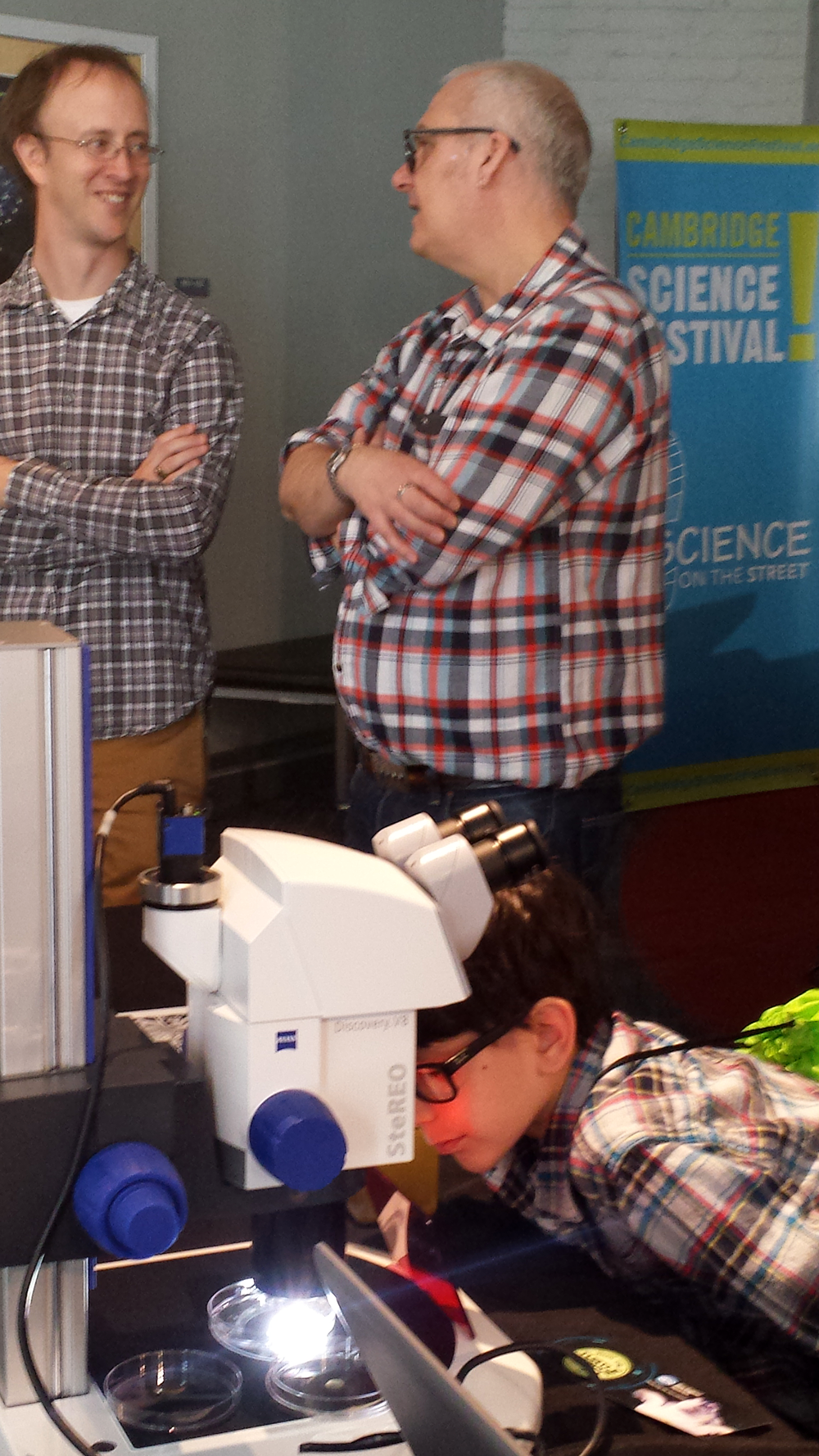All News
-
Featured Stories | September 9, 2014
Where time stands still, ideas travel generations
Tradition, chalkboard mathematics, "free-wheeling" lectures, mentorship, and ample time to think make the Geophysical Fluid Dynamics program a summer school like no other. -
WHOI - Oceanus | September 4, 2014
Proteomics Reveals Ocean’s Inner Workings
Scientists adapt biomedical tool to study marine ecosystems -
MIT, MIT EAPS | September 3, 2014
Classroom Earth: DEAPS Extreme Weather and Climate 2014
Falling fruit, scintillating stargazing, magnificent Mt Washington: All this plus a very EAPS take on the ALS ice bucket challenge. -
WHOI News | September 3, 2014
WHOI Scientists Receive $1 Million Grant from MacArthur Foundation
WHOI scientists have received a $1 million grant from The John D. and Catherine T. MacArthur Foundation to develop science-based climate change adaptation solutions for coastal communities. -
Featured Stories | September 2, 2014
Corals, tiny engineers of their own homes
Corals are not passive inhabitants of the sea; rather, they are active engineers of their own environment. Related topics | Microbial Ecology | Ecosystems -
Featured Stories | August 27, 2014
3 Questions with Carl Wunsch on the Ocean’s changing temperature
Oceans at MIT asks Carl Wunsch about a major topic in today's climate change discussions: how the ocean's temperature has changed. Related topics | Oceans and Climate -
Featured Stories | August 21, 2014
Solving the polar climate conundrum
Ocean circulation explains why the Arctic feels the effects of global warming much more than the Antarctic. Related topics |Human Influences -
Featured Stories | August 19, 2014
Flying on the Foils: a Q&A with Brooks Reed, MIT’s Moth Sailor
All summer, a hydrofoiling sailboat has been flying atop the Charles River. The person skillfully handling this International Moth Class boat is none other than Brooks Reed, a professional sailor and MIT PhD student in MIT Mech E. Related topics | Ocean Engineering | Design of Ocean Systems -
Featured Stories | August 17, 2014
Broadening the ‘scope’ of microbial oceanography
With an infusion of private funds, MIT researchers will break new ground in the study of marine microbes at the legendary ocean field site Station ALOHA. Related topics | Microbial Ecology | Biogeochemical Cycles -
WHOI - Oceanus | August 12, 2014
From Penguins to Polar Bears
The impacts of climate change in polar regions -
WHOI News | August 11, 2014
REMUS SharkCam Captures Upclose Encounters with Great Whites
When a team from WHOI took a specially equipped REMUS SharkCam underwater vehicle to Guadalupe Island in Mexico to film great white sharks in the wild, they captured more than they bargained for. -
MIT News | August 6, 2014
Undersea living: Alumna joins Cousteau mission
What’s it like living on the bottom of the ocean for more than two weeks? Nicer than you might think, according to Grace Young ’14. -
WHOI News | August 6, 2014
Mercury in the Global Ocean
WHOI scientists report on the first direct calculation of global mercury pollution in the world's ocean. The study shows three times more mercury in upper ocean since the Industrial Revolution. -
WHOI News | August 4, 2014
DEEPSEA CHALLENGER Travels to NYC for Cameron Film Premiere
The one-of-a-kind, deep-diving submersible DEEPSEA CHALLENGER will travel from its home at WHOI to the American Museum of Natural History in Manhattan, on Mon., Aug. 4, for the premiere of the feature film, “DEEPSEA CHALLENGER 3D.” -
WHOI News | August 1, 2014
Newly Discovered Juvenile Whale Shark Aggregation in Red Sea
Whale sharks (Rhincodon typus)—which grow more than 30 feet long—are the largest fish in the world's ocean, but little is known about their movements on a daily basis or over years. A newly discovered juvenile whale shark aggregation off Sa... -
WHOI - Oceanus | July 30, 2014
A Haven for Whale Sharks
A rare glimpse of the world's biggest fish -
WHOI - Oceanus | July 25, 2014
A Mooring in Iceberg Alley
Fjords may link warming oceans and melting glaciers -
WHOI - Oceanus | July 18, 2014
A Drop in the Ocean
Scientist pioneered tracer to reveal hidden ocean flows -
WHOI News | July 15, 2014
Dispersant from Deepwater Horizon Spill Found to Persist in the Environment
A new study has found that the dispersant compound DOSS, which decreases the size of oil droplets and hampers the formation of large oil slicks, remains associated with oil and can persist in the environment for up to four years. -
Featured Stories | July 7, 2014
Seeing the “hump-shape” in microbial diversity
An ocean ecosystem model from the Darwin Project solves the mysterious relationship between diversity and productivity of marine phytoplankton. Related topics | Microbial Ecology






